- Learning time
- 30 minutes
- First play time
- 90 minutes
Gold West
Designed by: J. Alex Kevern
In Gold West you’re competing prospectors, scavenging the old west for precious metals. The game has five resources: wood and stone will be used to build settlements, and the precious metals of gold, silver and bronze are spent in a variety of ways, all of which get you points.
The main board is placed centrally: the lake goes in the middle, and other pieces slot around it randomly. On each location hex, matching coloured tiles are placed face-down. This represents the terrain. Each player has their own board, where you store settlements (which will be pitched in the game) and discs (which are used in a couple of different ways). Finally your player board has a track on it which represents your current resources – and when you can use them. This track is at the heart of the game, as it uses a mancala-style system to shuffle resources forward.
Play proceeds as follows: on your turn you pick up all of the resources in any one area of your track (either zero, 1, 2 or 3) then move them forward, dropping one resource off as you go. After you pass the zero, any resources left over are what you have to spend this turn. You can use wood or stone to build settlements on the main board, and when you do so, you gather the resources located there and put the tile you’ve picked up on the board – players who have settled the most in any terrain type will score points at the end of the game. You can spend metal in a number of ways; the details of which are a little too complex to cover here, but there are ways to score points instantly, and ways to score points at the games’ end, depending on the location of your settlements. These vary from game to game.
The resources you collect are then dropped into your track on your player board – you can make them all (all but one) instantly available by dropping them into the zero section – or drop them further back, and score points equal to the number of the section of track they’re deposited in.
This continues for 12 rounds, after which all points are tallied up to discover the winner.
Joe says
Gold West is a very smooth playing experience, butI agree with Sam, it doesn't make you feel much like a 49er. It's elegant almost to the point of being anodyne, but the mancala mechanic is unusual and head-scratching enough to add some grit. If you want a game that offers the sorts of challenges you often find in longer, more complex fayre, but that won't eat up a whole evening, you could do a lot worse. And it's beautifully produced too.
The guru's verdict
-
Take That!
Take That!
There are definitely opportunities to see what other players are up to, and kibosh their plans. The more you play, the more evident this becomes. But it's far from the game's overriding feature.
-
Fidget Factor!
Fidget Factor!
It is a game that does invite the odd lull, but familiarity will see this drop substantially.
-
Brain Burn!
Brain Burn!
Moderate. Gold West isn't what we'd call a naturally intuitive game - it has puzzle-like elements - but halfway through a first play things will click into place.
-
Again Again!
Again Again!
There's much variation here - random set-ups on the board and distribution of the tiles. The end-game scoring also changes. And you can try different strategies too.

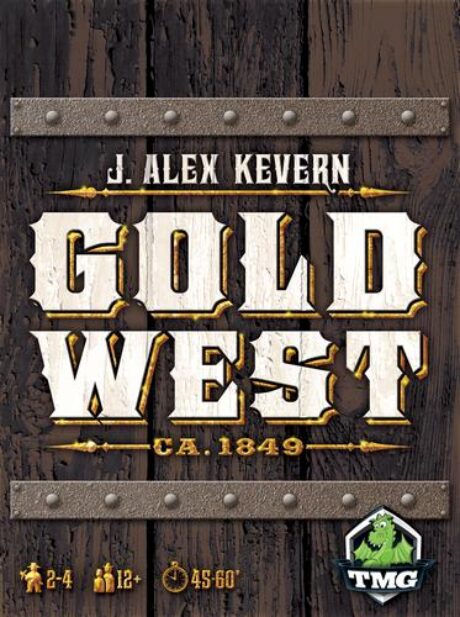
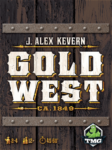
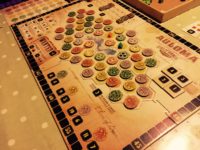
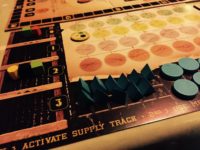


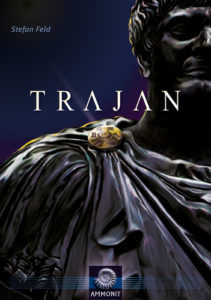
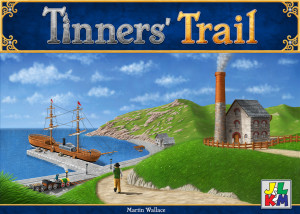
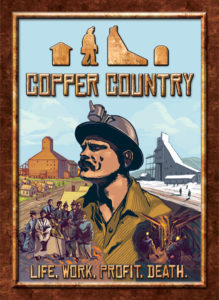
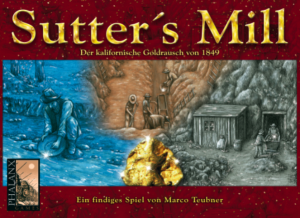
Sam says
Gold West isn't a game dripping with theme: at no point playing it do I feel like I'm in the muck and grub of 19th century gold-mining - and indeed, if I did some things about it wouldn't make sense. The games mechanics are on the surface - but, the mechanics are very neat. That mancala system really needs to be managed so you always have resources to spend (there are penalties for not placing settlements) but there is the temptation to spend big and leave yourself with nothing to do on a subsequent turn. It's a clever, lovely-looking game for gamers who like a puzzle to solve.